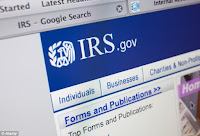According to Law360, a federal judge ruled on February 24, 2020 that prosecutors can use documents from the Panama Papers leak at the criminal trial of an accountant facing tax conspiracy charges, despite defense attorneys’ complaint that the information was stolen.
U.S. District Judge Richard M. Berman ruled during a hearing in his Manhattan courtroom that prosecutors can use documents leaked from Panamanian law firm Mossack Fonseca at the March trial of Elder Gaffey & Paine PC accountant Richard Gaffey. The judge also signed off on prosecutors calling a German criminal investigator to the stand to bolster the documents' authenticity.
Gaffey stands accused of helping clients conceal overseas assets to avoid paying taxes in the U.S. with the help of former Mossack Fonseca attorney Ramses Owens.
The now defunct law firm, which specialized in handling offshore accounts, made news in 2016 when the International Consortium of Investigative Journalists obtained more than 11 million leaked documents detailing the firm’s work moving money for wealthy and powerful clients.
Ahead of the hearing, prosecutors told the judge in a filing that they had obtained documents related to one of Gaffey's clients through a request to German criminal investigators, who got their hands on the entire database.
Gaffey's attorneys complained in their own filing that it remains unclear how the documents were obtained or who had access to them before they found their way to Germany. They argued the Panama Papers leak was on par with former CIA programmer Joshua Schulte's alleged disclosures to WikiLeaks, which are the subject of an ongoing criminal trial.
"It is offensive to public policy to prosecute individuals by relying on documents only obtained through criminal conduct at the same time that the government aggressively prosecutes people who engage in exactly the same conduct," Gaffey's attorneys wrote.
On February 24, 2020, Judge Berman approved their request to call a German agent as a witness to testify about how reliable German authorities have found the database and why they believe it is authentic, including that some of the documents matched those separately obtained in raids by German police.
Judge Berman sided with prosecutors on the issue. In support of allowing the terms, the judge pointed to a 2006 ruling in U.S. v. Stein, the case involving allegations of illegal tax shelters created by KPMG, that rejected a bid by the defendants to cut terms including "tax shelter" from their indictment.
Read more at: Tax Times blog



















